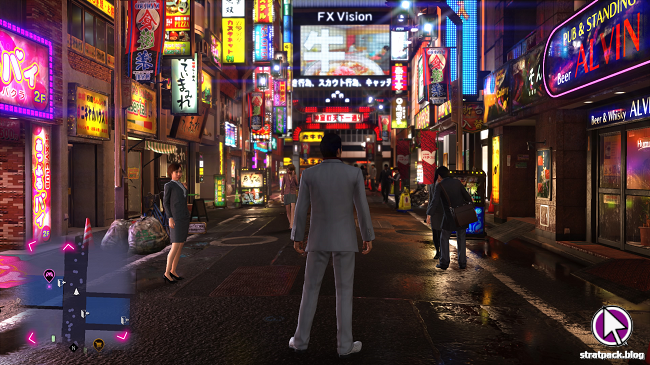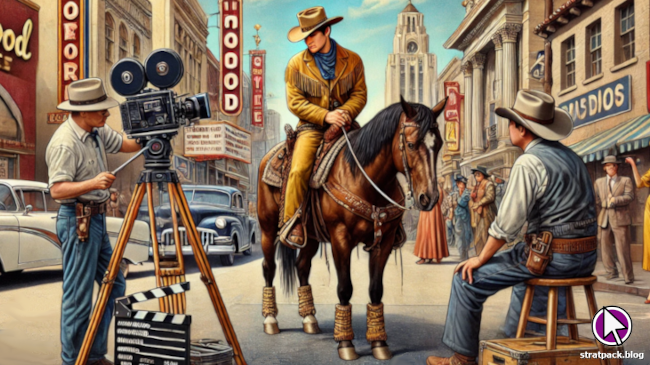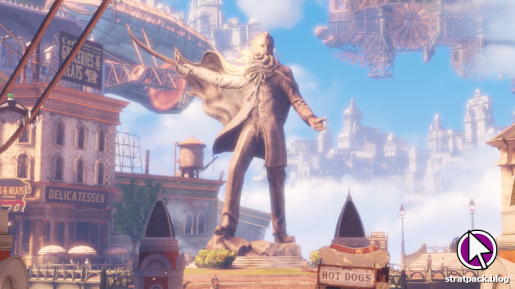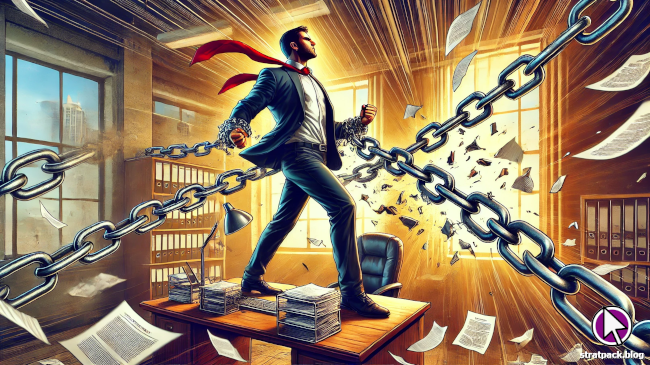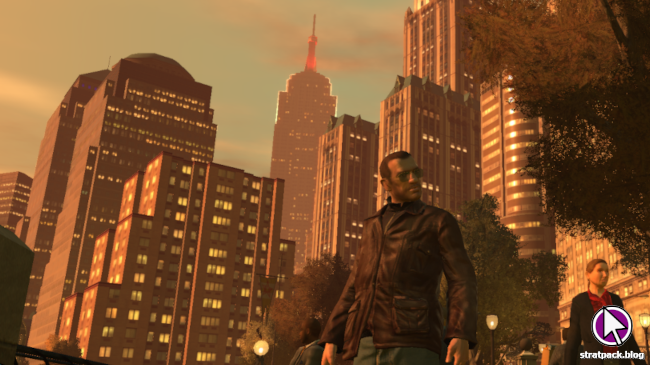
Atlas Shrugged by Ayn Rand
Atlas Shrugged is something of an anomaly. For every online commenter promoting Ayn Rand’s modern classic as essential reading, there’s a critic advising against ever picking it up at all, and it’s hard to separate opinions based on incompatibility with the holder’s politics from those critiquing it as a work of literature.
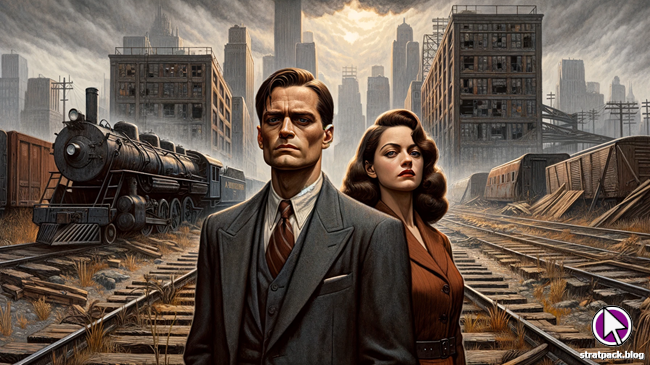
It was hard to justify committing to a 1,200-page novel when I might just have been wasting my time, but I recently decided it was time to take the plunge and form my own opinions. With a slight trepidation - and, admittedly, a curiosity to learn more about the philosophy that BioShock opposed so strongly - I finally took it on.
The disaster of denying reality
There’s a tragic scene about halfway through Atlas Shrugged where a diesel-powered passenger train breaks down outside a tunnel in the Colorado mountains. The local workers know there is no option but to hold the train – there are no other diesel engines available, and sending a coal-powered locomotive through such a long and poorly ventilated passage would almost certainly end in disaster.
One passenger – a politician – is not satisfied with their explanations, and sends a telegram to the train company’s CEO in New York demanding the train continues its journey. The CEO urges one of his executives to make it happen, and the executive sends a carefully worded telegram to the local workers ordering them to find “an engine” to send the train “safely” to its destination “without unnecessary delay”.
By this point in the story laws have been passed, ostensibly to clamp down on out-of-control barons of industry, that tie men to their jobs. They are not allowed to quit or to be sacked, which strips them of the power to object. If they refuse to follow orders or attempt to leave their roles, they will be put in front of a governmental tribunal that will likely bar them from all future work, condemning them to poverty.
Those in charge of the area know that this puts them in an impossible situation. The careful wording of the executive’s message absolves him of any responsibility – he can claim the selection of a coal engine was incompetence on their part, or blame them for the politician’s anger if they rightly hold the train where it is. Some of them scheme and try to find ways to deflect potential blame onto their coworkers.
In the end, despite everybody working on the line knowing that setting the train off with a coal engine is the wrong decision and completely immoral, nobody speaks up to stop it. They know that to do so would be to choose to save the lives of those on board, but would entrap themselves, their wives, and their children in a life of poverty when they would be sentenced for illegally resigning from their roles.
Nobody wants the final call on their conscience. But rather than facing reality, they turn their backs on it, and the order is passed all the way from the CEO down to the lowliest worker – a boy who is paid simply to follow commands and not to think for himself. He sets the train off, and 300 people die in the subsequent disaster.
Decoupling effort and reward
Ayn Rand’s novel about a parallel, dystopian United States is littered with accounts of failures and accidents caused by the incompetence that stems from overreaching laws seeking misguided justice, but the Colorado rail disaster is the first that she describes in such grim detail, meaning it hits much harder emotionally.
At this point in the book, the protagonist, capable railway chief operating officer Dagny Taggart, is living in an isolated house in the countryside, having left the city and her job to flee the imposing and ever encroaching regulations that are stifling her best efforts to keep the railroad running and America moving.
The disaster marks something of a turning point. When she hears the news on the radio she rushes back to her office, realising that she simply cannot stand by and watch the growing incompetence cause such harm. It is her duty to do her best in spite of the opposing forces that are promoting mediocrity in all areas.
It’s the doers who are the heroes in Atlas Shrugged – those like Dagny who make things happen, with the optimism to imagine a better world and the competence to deliver on their ideas. Rand’s characters believe they are entitled to the reward that their intellect and commitment brings in exchange for providing work, a living, and of course the benefits of the technologies they invent to others.
This is juxtaposed against a homeless man’s account of a car factory he previously worked at, where the owners decided the workers would be paid by need, not by effort or ability, as voted on at an annual meeting. He explains the effect: “[The worker] had to beg in public for relief from his needs… listing all his troubles and miseries… because it’s miseries, not work, that had become the coin of the realm.”
The result of the scheme? The man and his competent colleagues’ output flagged as they avoided expending effort that would sap their energy and health and for which they would not be rewarded. In the end, the entire scheme failed and the car factory closed down, putting everyone out of work, damaging the local economy, and condemning even those who were originally on lower wages to zero income.
Literally Atlas Shrugged
I was immediately struck by the parallel to the modern clamour on social media to stake a claim as to who is least privileged and to provide praise and reward on this basis, rather than celebrating those who strive to build, produce, achieve, and make the world a better and more prosperous place regardless of their background.
For a book published in 1957, Atlas Shrugged contains an astounding number of such likenesses to the world in 2023, and if it were more widely read and understood (which perhaps it would be if it wasn’t 1,200 pages long) I think it would be referenced more often than the “literally Nineteen Eighty-Four” meme.
The men in Washington waging war on the industrialists are driven by ideology over reason, and go unchecked because they have successfully driven fear into the public that they could lose their livelihoods if they dare challenge them. Even when the leadership are presented with objective facts that show their policies are failing, they simply accuse the dissenter of being obtuse and illogical – “that’s only theory”.
This secondary assault on language is part and parcel of the antagonists’ philosophy – countries adopting their policies around the world prepend “People’s State” to their names, and the changes are all announced in the name of fairness and prosperity. Objective reality is denied and ignored in favour of subjective beliefs.
The deep-rooted problems with their worldview are explained in depth in a rogue radio broadcast by John Galt, the leader of a strike by the country’s greatest innovators that demands the return of meritocracy. His rant, which spans some 60 pages, is essentially an essay detailing Rand’s objectivist philosophy, accusing the “looters” of acting more out of hatred for the rich than concern for the poor.
“Destruction is the only end that the mystics’ creed has ever achieved… If they profess to be moved by love, yet are not deterred by piles of human corpses, it is because the truth about their souls is worse than the obscene excuse you have allowed them, the excuse that the end justifies the means and that the horrors they practice are means to nobler ends. The truth is that those horrors are their ends…
“The mystics’ scramble for spoils is only a screen to conceal from their mind the nature of their motive… They do not want to own your fortune; they want you to lose it; they do not want to succeed, they want you to fail; they do not want to live, they want you to die…”
The leaders’ doublethink reaches cartoonish levels shortly after, when Galt is caught and his captors repeatedly state that he is not imprisoned or under arrest even when he’s being held by armed guard in a locked-off hotel. They then insist that they want him to work with them “voluntarily” while putting him through electrical torture. By this point they’ve spent so long convincing themselves of their good intentions and ignoring reality that it seems they genuinely struggle to tell the difference.
Objectivity as a foundation
Atlas Shrugged often seems to be sniggered at online, usually with the implication that it’s a book a privileged university student reads to inform a naïve worldview, but for me it was both gripping as a story and - while I don’t agree with every view expressed by the positively-framed characters - it’s a book that sends a clear and undeniable message: competence is vital to a flourishing and sustainable society, and competence can only thrive when objective fact is held above all else.
At the time of publication nobody could have known the unprecedented era of peace and prosperity that the world was about to embark upon. While developments since then have been undoubtedly positive, they have also created a layer of abstraction in most peoples’ daily lives. I don’t need to think about where food comes from, how my home is powered, or what my computer is made of. These things just… appear.
While we squabble over sports, social policies, and which Netflix series shoudn’t have been cancelled, Atlas Shrugged serves as a reminder that we should never take our eyes off the work that is essential to our way of life. The preferences and beliefs we have the luxury of holding shouldn’t interfere with societal underpinnings that were built on rationality, science, and the study of objective fact.
That’s not to say that we shouldn’t challenge convention - by all means, if somebody has an innovative new approach then it should be trialled and adopted if successful. But it’s a dangerous game to tear down proven and relied-upon systems because the alternative looks good through the rose-tinted lenses of ideology.
Atlas Shrugged imagines a world where an ideology that places emotion before practicality gains enough momentum that it disrupts the production of materials, transportation systems, and food supply chains. Just as the COVID-19 pandemic demonstrated just how precarious our modern lifestyles are, Rand’s novel warns us not to take the fundamentals and the people who make them work for granted.




